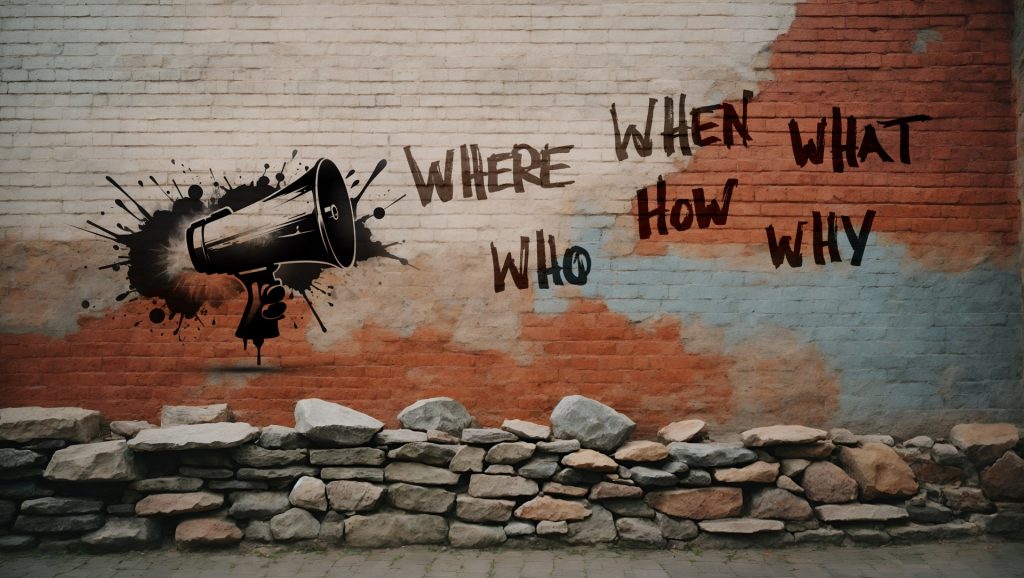
Welcome, readers, to May 2024’s second issue!
This month the theme is Self-Determination, having the space and power and dignity to be able to understand and shape one’s own destiny. We stand with all peoples of the world seeking self-determination.
Raafia Shaheen urges us to see people on their own terms and not just how they are useful to us.
Michael Robinson reviews and finds encouragement from Jacques Fleury’s You Are Enough: The Journey To Accepting Your Authentic Self. The book suggests that Black men worldwide should define themselves on their own rather than simply following social stereotypes.
Shahnoza Ochildiyeva tells the story of a girl who has to leave her Uzbek home due to loss but who returns home having made something of herself.

Zarina Abdulina speaks to the importance of worthwhile work to a person’s self-concept and how teaching fills the role for her. Marjona Shayimova talks about finding the courage and perseverance to achieve her goals.
Nazokat Urinboeva offers up a tribute to Uzbekistan’s strength and cultural heritage, all the way back to Mughal emperor Babur while O’tkir Kochkor enscribes poetic praise for the majesty and history of his Uzbek homeland. Mannonova Shakhnoza outlines scholarly research into the history of the Kagan Khanate in Uzbek history as Zulayho Sultonaliyeva illustrates how her culture and society can adapt for the times in her piece on the legal precedent and need for updating and modernizing Uzbekistan’s constitution.
Behruz Toshtemirov argues for the unique qualities of literature as an art form, inspired by her Uzbek cultural heritage.
Abdunazarova Khushroy gives us a poetic tribute to the heritage and language of Uzbekistan as Feruza Abdullayeva pays tribute to the many Uzbek writers whose work she admires.
Evie Petropolou showcases an Egyptian celebration of the Greek poet Cavafy, who was known for his sensual and political poems and unconventional personal style.

Alan Catlin rearranges verbal ephemera from famous people to create unique character sketches. Jacques Fleury celebrates the good fun of the Blue Man Group while Noah Berlatsky shares a harsh and iconoclastic thought about Ezra Pound and Daniel De Culla’s poem pokes gentle fun at the wealthy and powerful.
Mark Young presents a fresh set of his signature mix of text and colorful images as Saad Ali showcases ekphrastic work in response to historical paintings, inserting his thoughts into the fabric of history.
Kylian Cubilla Gomez crafts photographic closeups of his dinosaur and tractor toys and other childhood ephemera. Habibova Mahzuna expresses nostalgia for her lost childhood.
Wayne Russell avows his allegiance to travel and adventure while Sayani Mukherjee’s poetry evokes flights of imagination around the globe.
Adam Fieled peers into the close and tempestuous relationship between an artist and a muse. Gaurav Ojha outlines his path from youthful lusts to maturity and spiritual transcendence. Sandip Saha’s pieces explore the search for mystical spirituality amidst daily life.
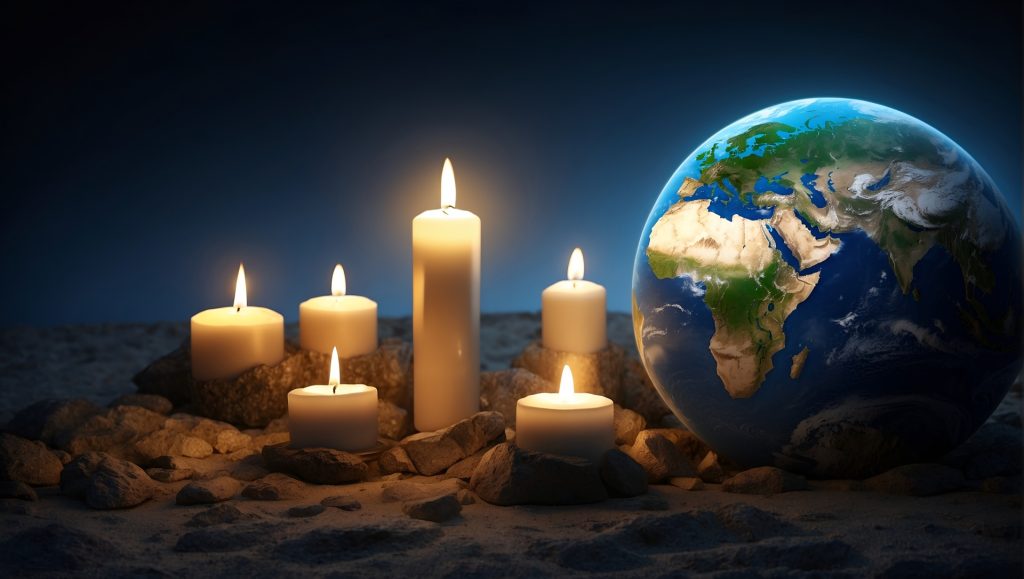
James Whitehead probes timeless questions about human life, ethics, and suffering. Niginabonu Amirova reflects on our mortality and the cycles of nature as Mykyta Ryzhykh crafts lowercase poems about the tragedies of quick and slower deaths and Mashhura Abduhalilova renders the experience of mental distress, showing how anxiety distorts time and sensations.
Nigar Nurulla Khalilova laments society’s being uncaring to the vulnerable while Iraqi poet Faleeha Hassan takes a quiet moment to mourn family members lost to war.
Bruce Roberts reminds us of the historic coexistence of Jews, Christians, Muslims and other people in the Middle East and laments the current violence in the region.
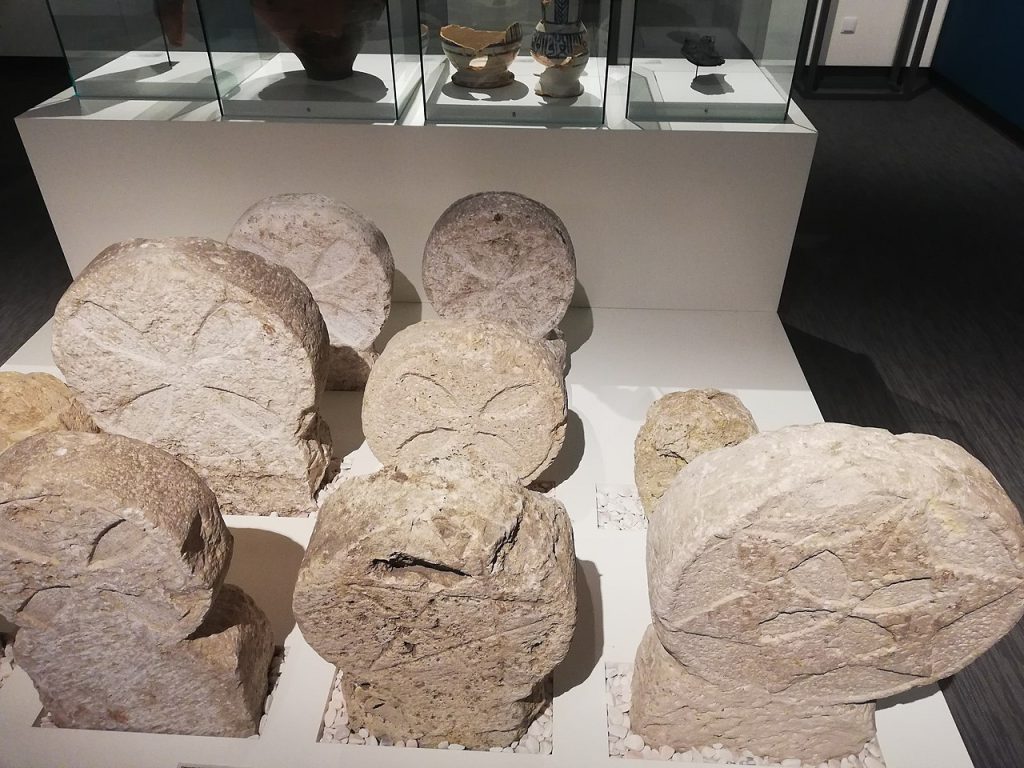
Grave markers from medieval Lisbon, showing Christian crosses, Muslim pentagrams and Jewish Stars of David. (Museu de Lisboa)
Bill Tope’s story exposes different levels of corruption in the nonprofit world, how greed can mess with even the best of intentions.
Z.I. Mahmud looks into scholarly literature that explores the tension between Batman’s heroism and his lawbreaking and vigilante violence.
J.J. Campbell seeks to show small kindness in an alienating world. Feruza Muzaffarova highlights the humane sensibility behind O’tkir Hashimov’s novel Between Two Doors. On a personal level, Niginabonu Amirova urges a return to common courtesy, beginning with greetings.
Tuliyeva Sarvinoz speaks to the importance of setting a good example and preparing children for the world. Diyora Tursunboyeva reminds us of the importance of encouraging children’s dreams. Niginabonu Amirova celebrates the joy of sports and athleticism for young people as Rano Babamurodova encourages children to read books and learn.
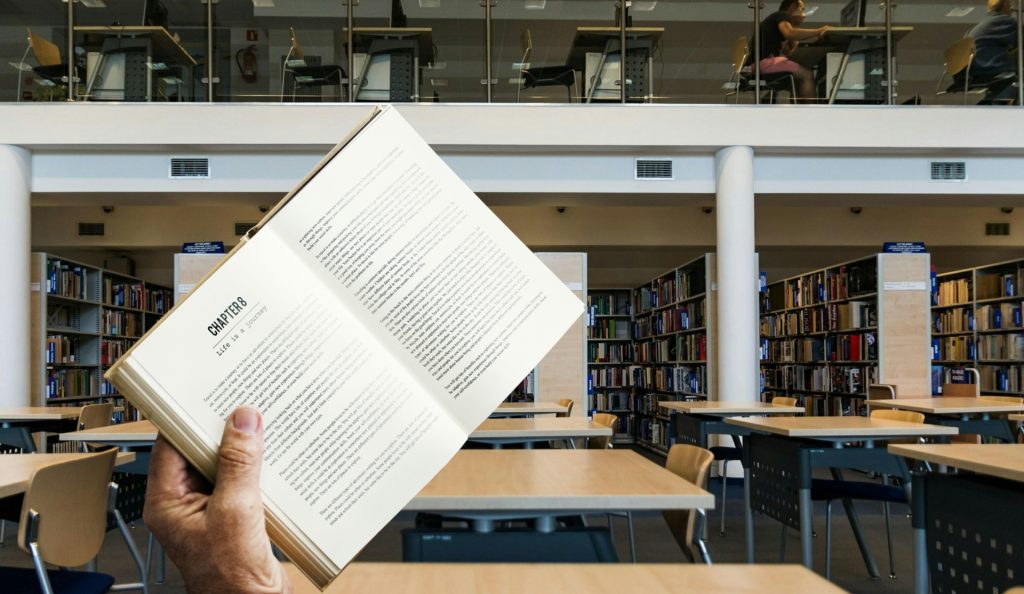
Tuliyeva Sarvinoz also outlines offerings at Uzbekistan’s vocational schools as Abdunazarova Khushroy reflects on educating herself by learning Arabic and Jumanazarova R. gives honor and respect to a dedicated teacher. Tuliyeva Sarvinoz also pays tribute to another educated and accomplished writer and teacher.
Muslima Murodova Kadyrovna pays tribute to the spiritual and compassionate love of her mother. Zuhra Ruzmetova also honors the care and encouragement and constancy of her mother. Nosirova Gavhar pays tribute to her grandfather who introduced her to books and gardening. Zilola Khamrokulova sends up a poetic love piece for her mother as Nozima Uloguva’s poetry and prose celebrates the sacrificial and dedicated love of many mothers as Dilnoza Eshqulova renders up her intense grief and spiritual angst after losing her mother.
Prasana Kumar Dalai presents the joys, pains, and trepidations of love and Mesfakus Salahin contributes delicate romantic poetry. Duane Vorhees presents various sensual love poems through the metaphors of music, literature and cosmology. Kristy Raines sends up passionate and adoring pleas to her lover to remain close.

However, Taylor Dibbert reminds us that no matter how much work you put into a relationship, it doesn’t always last forever. Perhaps the couple he describes could have heeded Madina Toxirova’s advice on the importance of psychology for young people to understand themselves before marrying. Zafar Nur contributes a poem of lament over a heartbreak as Maurizio Brancaleoni translates poetry from Italian writer Amelia Rosselli on quiet heartbreak and loneliness.
Maheshwar Das exults in love, faith, and nature as Brian Barbeito outlines a poetic and pastoral journey in the rain and Brian Barbeito also shares closeups of spring flowers.
J.D. Nelson’s haiku captures spring moments of transition and in-betweenness as Isabel Gomez de Diego contributes photos of various doors and entry ways. Lynn White highlights the whole worlds going on in what we might consider the background of nature.
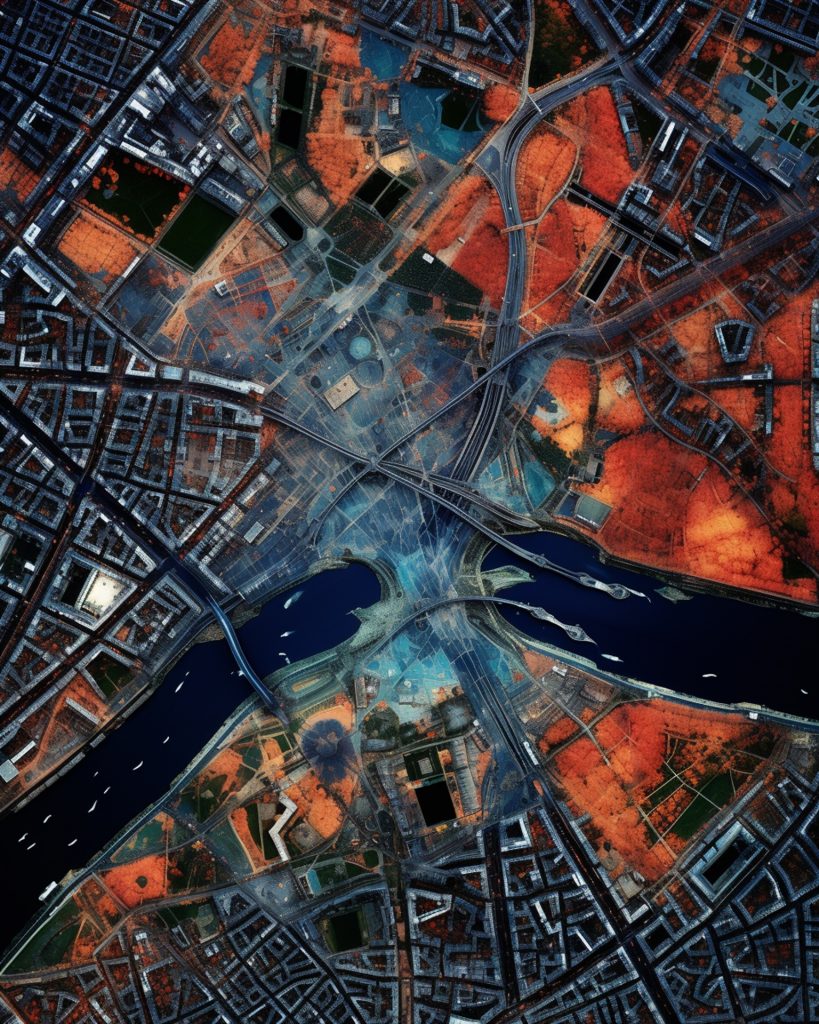
Mahbub Alam celebrates nature and love in his Bangladeshi homeland. Abduvohid Holikov presents a description of the cultural and natural beauty of the Denov region of Uzbekistan while Ochildiyeva Dilnoza Abdivokhid celebrates the Surkhandarya region’s cultural and natural history and her family heritage. Abduhoshim Maxamadov celebrates the geographic and biological diversity of Central Asia’s Ferghana Valley. Samadov Aziz Xasanovich encourages technology development in harmony with these natural environments in his paper on measurement techniques for constructing horizontal and inclined wells.
Graciela Noemi Villaverde captures a moment of personal and mental stillness and rest. Lilian Dipasupil Kunimasa finds her psychological rest and inspiration in water: rain and the ocean’s diversity of life. Annie Johnson speaks to calm moments with her love throughout time and seasons of nature.

My felicitations to all poets & writers featured in this Issue!
Kind regards,
Saad Ali
(aka Owl Of Pines)